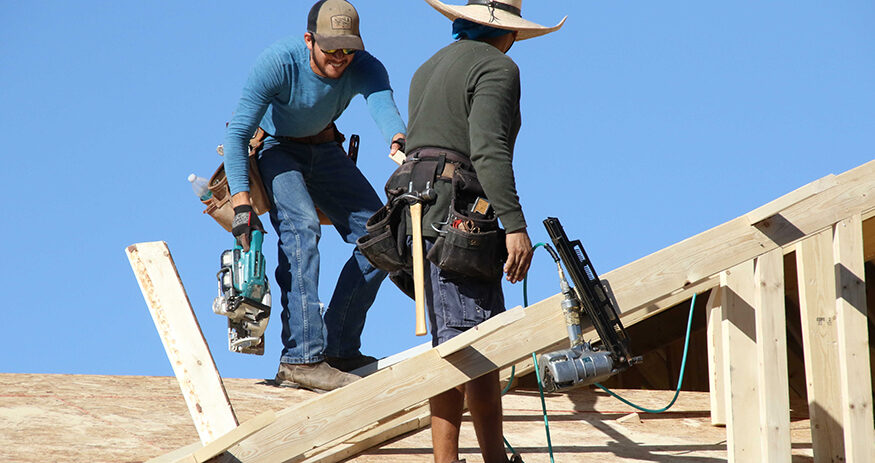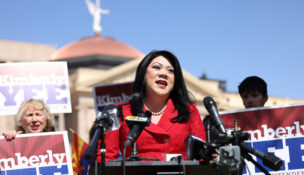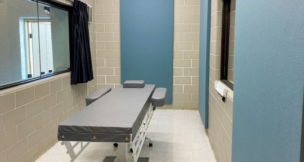Lawmakers at odds with some cities over housing laws
Jakob Thorington Arizona Capitol Times//November 29, 2024//
Lawmakers at odds with some cities over housing laws
Jakob Thorington Arizona Capitol Times//November 29, 2024//
Some Arizona cities are balking at adopting new housing laws that are set to take effect Jan. 1.
The Scottsdale City Council passed draft ordinances Nov. 25 that House Majority Leader Leo Biasiucci, R-Lake Havasu City, said circumvents a law he sponsored that allows cities to convert commercial and office buildings into multifamily housing.
The city only plans to reuse 1% of eligible buildings, while the law says cities can reuse “up to” 10% of eligible buildings. The law, passed as HB2297, states buildings must be economically or functionally obsolete, or have at least 50% vacancy in total leasable square footage.
Biasiucci noted other language in the ordinance that he took issue with, including what he said was unnecessary criteria that requires eligible buildings to have economic or functional obsolescence for at least six continuous months.
HB2297 was a hard-fought bipartisan measure and signed by Gov. Katie Hobbs this year, which allows cities to rezone up to 10% of their existing commercial, office or mixed use buildings without the need for a public hearing.
“Upon reviewing the City’s interpretation and implementation of this legislation, I am deeply disturbed by actions that appear to circumvent (House Bill 2297’s) clear statutory intent,” Biasiucci wrote to Scottsdale Mayor David Ortega and the City Council before their vote.
The Scottsdale City Council approved two draft ordinances without addressing Biasiucci’s concerns. Ordinance No. 4651 is a commercial-to-multifamily residential rezoning package that outlines how the city plans to implement the new law in a way that city officials say will minimize its negative impact.
Biasiucci’s final concern was that the ordinance would exempt land located within the immediate vicinity of the city’s airport, but he argued the city’s exemption plan goes beyond that area and noted it includes portions of the flight path of Phoenix Sky Harbor International Airport.
“It appears unlikely that any new high-density development could be constructed anywhere within the City, as the entirety of Scottsdale is effectively deemed within the flight path,” Biasiucci wrote.
Scottsdale City Councilwoman Tammy Caputi said on Nov. 25 that commercial land use is about .8% of existing land area outside the city’s airport exemption area.
Scottsdale isn’t the only city that has taken issue with the new adaptive reuse law. The Gilbert Town Council held a study session in October also looking at ways to minimize the impact of the law, according to a report in the Gilbert Sun News.
On Nov. 6, the Gilbert Planning Commission also considered two draft ordinances related to HB2297 and HB2720, a law that requires cities to allow property owners to build accessory dwelling units, or casitas.
Gilbert has 85 buildings eligible to be reused as a result of the new laws, but city staff has identified several areas to designate as protected hubs that would be exempted from the reuse law.
“This is not to say that we don’t support adaptive reuse in these areas, but what we want to do is to be able to retain the ability to review those types of requests through our normal processes,” said Veronica Gonzalez, principal planner in the town of Gilbert.
The Town Council is set to vote on the draft ordinances on Dec. 3.
Scottsdale City Council members took even greater issue with the casitas law. Several members of the council criticized the law and said it would exacerbate the city’s issue with short-term rentals.
“This is an assault on our local control and our neighborhoods,” Councilwoman Solange Whitehead said during the council’s Nov. 25 meeting.
Whitehead raised her concerns with public safety since the city can’t regulate fire sprinkler systems the same way it does for other housing properties.
Scottsdale opposed both HB2720, the casitas law, and HB2297. Other cities opposed the casitas bill and leaders from the League of Arizona Cities and Towns had concerns the bill would lead to more short-term rental properties.
“The Arizona Legislature subverted our decades of planning and our decades of working in consensus,” said Ortega.
Following Scottsdale’s vote, Biasiucci and incoming House Majority Leader Michael Carbone, R-Buckeye, who sponsored HB2720, released a statement expressing their disappointment that the city didn’t address their concerns with its ordinances.
“For over a year, we worked with numerous stakeholders, in good faith, on the bill language,” the representatives wrote. “With the City’s passing of the ordinance, Scottsdale is now in violation of the laws passed in HB2297 and HB2720.”
Biasiucci and Carbone said they were hopeful the city would change its ordinances before Jan. 1.
The representatives could file a complaint with Attorney General Kris Mayes if the city doesn’t change the measures, allowing Mayes to weigh in on the issue.














































